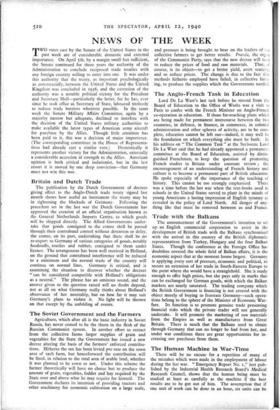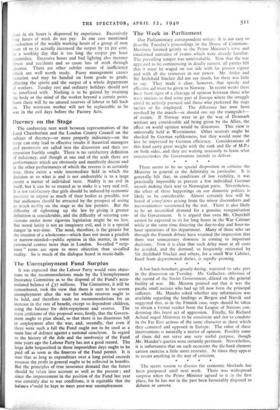The Human Machine in War-Time
There will be no excuse for a repetition of many of the mistakes which were made in the employment of labour during the last war. "Emergency Report No. t," just pub- lished by the Industrial Health Research Board's Medical Research Council, shows that the human being must be studied at least as carefully as the machine if the best results are to be got out of him. The assumption that if one unit of work can be done in an hour, six units can be done in six hours is disproved by experience. Excessively :Jng hours of work do not pay. In one case mentioned .1 reduction of the weekly working hours of a group of men from 58 to 51 actually increased the output by 22 per cent. in a working day that is too long the output per hour diminishes. Excessive hours and bad lighting also increase Illness and accidents and so cause loss of work through absence. There are other subtler causes of inefficiency which are well worth study. Fussy management causes irritation and may be handed on from grade to grade, affecting the spirits and the output of a whole department of workers. Sunday rest and ordinary holidays should not be interfered with. Nothing is to be gained by straining the body or the mind of the worker beyond a certain point. Soon there will be no unused reserves of labour to fall back on. The worn-out worker will not be replaceable as he was in the evil days before the Factory Acts.



































 Previous page
Previous page